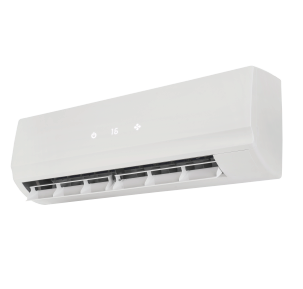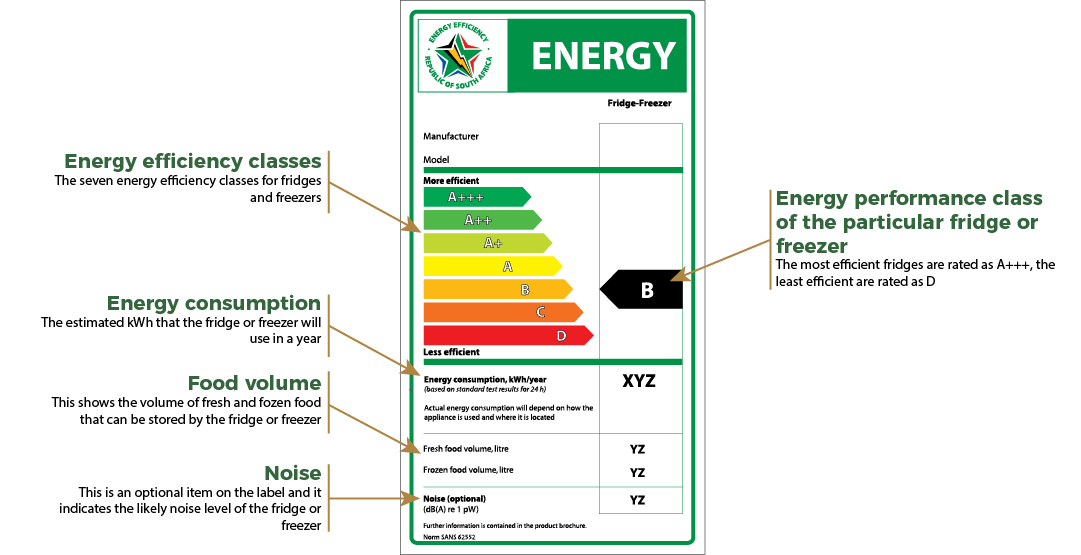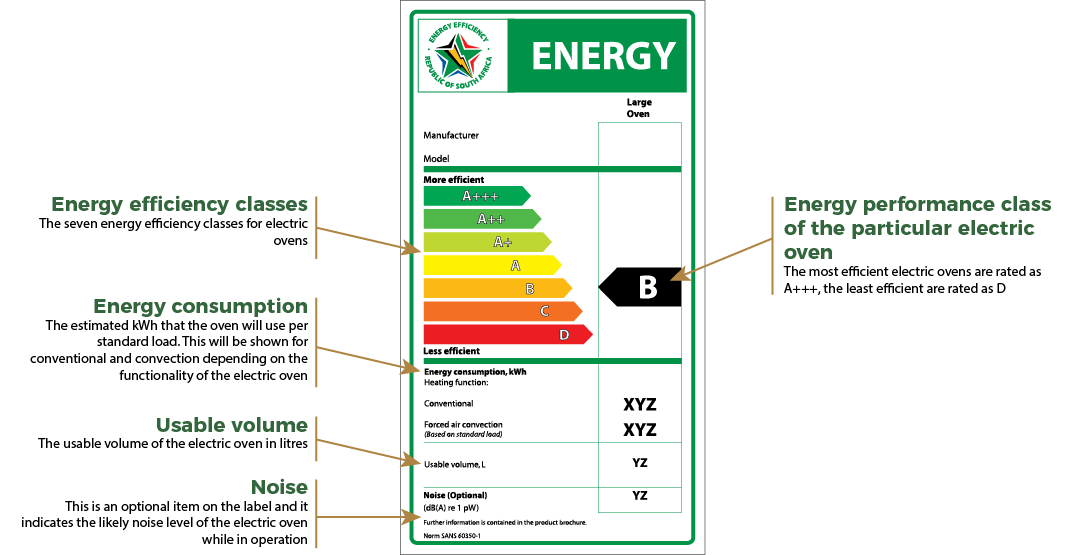Air Conditioners
Air conditioners can be one of the major consumers of energy in households, and consumers should carefully consider their choice of air-conditioner before making a decision to purchase because of the significant life time costs of operating an air-conditioner. It currently projected that in the long-term shifting to more energy efficient air-conditioners in South Africa will collectively save 400,000 MW of electricity annually.
To protect consumers from purchasing inefficient air-conditioners Minimum Energy Performance Standards (MEPS) have been set for air conditioners. Currently, only air conditioners with an Energy Efficiency Rating of Class B or better can be sold.
Since there is still a large range in the relative efficiency of air conditioners, it is good idea to carefully consider the energy consumption of an air conditioner prior to purchase. The South African Energy Efficiency Label that will be shown on an air conditioner in the showroom or online provides key information on the energy efficiency rating of the air conditioner and its projected annual energy consumption (details on how to read the label are discussed below).
One of the key decisions a consumer needs to make when purchasing an air conditioner is between an inverter air conditioner and a non-inverter air conditioner. The motor of the compressor in an inverter air conditioner has variable speed, while the motor of the compressor in a non-inverter air conditioner has a fixed speed. This difference means that a censor in the inverter air conditioner can adjust the speed of the motor depending on the room temperature, while a non-inverter air conditioner can only operate at one speed. In addition to being more energy efficient, inverter air conditioners keep the temperature of the room much more consistent by making fine adjustments compared to a non-inverter air conditioner which constantly has to turn the motor of the compressor on and off, leading to large temperature fluctuations.

Understanding the energy efficiency label
Air conditioners being sold must be labelled with a South African Energy Efficiency Label to help consumers understand the relative energy efficiency of different air conditioners. The image below shows a sample of a label for an air conditioner with an explanation of the key elements of the label.

Calculating how much the appliance will cost to run
The kWh figure for annual energy consumption that is shown on the label is designed to assist you to calculate how much it may cost to run the air conditioner on an annual basis. However, it should be noted that most consumers use air conditioners very differently and as a result the actual use is likely to vary considerably. The figure on the label assumes using the air conditioner at maximum power for 500 hours in a year (i.e. an average of 82 minutes a day). If you anticipate using the air conditioner more frequently than that, the cost of running the air conditioner will increase accordingly.
To calculate the annual running costs of an air conditioner, multiply the kWh figure for annual consumption by the cost of electricity in your municipality. You can find the kWh cost of electricity in your municipality by looking at your electricity bill. For example, if the label indicates that the air conditioner will use 1500 kWh per year and where you live a kWh of electricity costs R2 (including VAT), the cost of running the air conditioner will be R3000 for the year.
Appliance Energy Calculation Tools were created to aid consumers to make more informed decisions by calculating the long term cost for running an appliance. Click here to calculate the running costs and CO2 emissions for air conditioners.
{Annual Energy Consumption}
x {Cost of Electricity in your municipality}
= Annual running cost of the appliance
1500 kWh X R2 per kWh = R3000
Tips for using your appliance most efficiently
 Switch off air conditioners when rooms are empty.
Switch off air conditioners when rooms are empty.
Keeping a room cool when it is not occupied wastes energy. Only turn on the air conditioner when a room is occupied.
 Don’t use the air conditioner for heating
Don’t use the air conditioner for heating
Heating a room using an air conditioner uses a significant amount of energy. Dress warmly and use blankets if necessary.
 Use curtains and blinds to block sunlight
Use curtains and blinds to block sunlight
Closing curtains and blinds to block direct sunlight will help to reduce room temperatures and reduce the amount of work the air conditioner needs to do to keep the room cool.
 Only use the air conditioner when necessary
Only use the air conditioner when necessary
It is often possible to cool a room by opening windows and using fans. Only use the air conditioner if absolutely necessary.
 Service the air conditioner
Service the air conditioner
Servicing the air conditioner regularly will maximize its efficiency.
 Turn off lights
Turn off lights
Lights contribute to the heat of a room. If possible use natural lighting to reduce the amount of work the air conditioner needs to do to keep the room cool.










